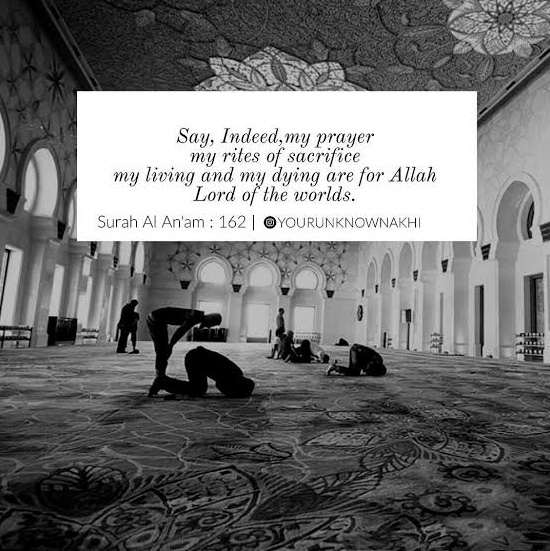format_quote Originally Posted by
Novice

Must there be a caliphate in order for a country to be considered a shariah state? I know there are many issues that Shariah is concerned with (economics, social issues, etc), but I was wondering that if all these were correctly implemented in a certain country (void of a caliphate, of course), would that country be considered a shariah state?
caliph means something along the lines of vicegerent/manager/caretaker/representative/ambassador.
it is an accepted person who establishes the rulership of God on earth and implements those rules.
Behold, your Lord said to the angels:
"I will create a vicegerent on earth."
Quran 2:30
it can also be seen in this prayer attributed to the Prophet Jesus (pbuh):
After this manner therefore pray ye:
Our Father which art in heaven,
Hallowed be thy name.
Thy kingdom come,
Thy will be done in earth,
as it is in heaven.
Give us this day our daily bread.
And forgive us our debts, as we forgive our debtors.
And lead us not into temptation, but deliver us from evil:
For thine is the kingdom,
and the power, and the glory, for ever.
Amen
Matthew 6:9-13
It allows for the leaders to make laws within it's spirit - but not to break any of the eternal laws and rule on their whim and to take the position of ultimate Ruler - which only belongs to God. for example - neither the Caliph - nor a unanimous vote can change the laws on incest.
a constitutional republic.
This is a duty as a Muslim that Almighty God will account us for as the Prophet (peace be upon him) said
“……and whoever dies without the pledge of allegiance to a Caliph on his neck, dies the death of the days of jahilliya (ignorance)”
[Recorded in Sahih Muslim]
so a state in ignorance would not be considered a full shariah state.
Can you explain the jizya/zakat? What is the historical backround around it? Who is eligible to pay and are there exceptions for some under certain conditions?
the zakat is a 2.5% due on savings and not earnings - i.e that left over after expenditure is met.
The Holy Qur'an (Sura Al-Tauba: 60) classifies the due recipients of zakat under the following eight categories."Zakat is for the poor, and the needy and those who are employed to administer and collect it, and the new converts, and for those who are in bondage, and in debt and service of the cause of Allah, and for the wayfarers, a duty ordained by Allah, and Allah is the All-Knowing, the Wise".
Zakah can only be distributed to any of the eight eligible beneficiaries (asnaf) that are mentioned in the Qur'an, At Taubah: 60. However, priority should be given to the poor and needy. Where there is no central authority to administer zakah, it can be paid directly to the needy."Alms are for the poor and the needy, and those employed to administer the (funds); for those whose hearts have been (recently) reconciled (to the truth); for those in bondage and in debt; in the cause of Allah; and for the wayfarer: (thus is it) ordained by Allah, and Allah is full of knowledge and wisdom." At Taubah : 60
- The poor (Faqir/Fuqara)
Those without any means of livelihood and material possessions. - The needy (Miskeen)
Those without sufficient means of livelihood to meet their basic necessities. For instance, those who, although may have a job, a house and a car, but whose income is below the minimum requirement. - The administrators of zakah (Amil)
Those appointed to manage and administer zakah. This category is sub-divided into the following categories:- Group of people who go out to the society and determine those who fall Fuqara and Miskeen categories.
- Those who collect the Zakah money.
- The accountant of the Zakah money.
- The administrator, manager, clerical worker or secretary who puts the files in order.
- Those who handle Zakah distributions.
- The auditor who audits overall Zakah management and administration.
- The sympathisers (Muallaf)
Those who are inclined to enter or have already converted to Islam. - To free slaves (Riqab)
Zakah can also be used to free slaves or captives. - Those who are in debt (Gharimin)
Zakah can be used to pay off the debts of a person who has borrowed to pay for basic necessities so that he/she can lead a normal life. Zakah can also be distributed to those in financial difficulties e.g. bankruptcy due to the loss of employment and heavy debt. - For the cause of Allah (Fisabillillah)
Zakah can be used to finance any form of struggle or work for the love of Allah. The following examples fall under this category, e.g. Da'wah; building & developing society's infrastructure; defending Islam, who are being oppressed; assisting poor travellers and sponsoring a student's educational expenses. - Those who are stranded during a journey (Ibnus Sabil)
Zakah can also be used to help a traveller facing difficulties in continuing his journey due to reasons such as loss of money or the break down of his vehicles, the repair of which he cannot afford.
find more here: http://www.islamic-world.net/economics/zakah.htm
the jizya is a tax which non-Muslims living in Muslim lands pay to the leadership which goes towards the administration costs of the Islamic state.
In return - they are entitled to full protection from all enemies - foreign and domestic.
In his message to the people of Al-Hirah, Khalid bin Walid is recorded as saying (in reference to the jizya),
"When a person is too old to work or suffers a handicap, or when he falls into poverty,
he is free from the dues of the poll tax;
his sustenance is provided by the Muslim Exchequer."
It is also recorded that Caliph Umar saw an elderly Jewish man begging, he asked of his condition and said to him,
"Old man! We have not done justice to you.
In your youth we realized Jizyah from you and have left you to fend for yourself in your old age".
Holding him by the hand, he led him to his own house, and preparing food with his own hands fed him
and issued orders to the treasurer of the Bait-al-mal (the treasury) that that old man and all others like him,
should be regularly doled out a daily allowance which should suffice for them and their dependents.
The protection of the dhimmi is the responsibility of the Muslims. The dhimmi are not obliged to join the army and fight to defend the Islamic State. Ibn Hazm said that one of the rights of the People of Covenant is that if Dar ul Islam is attacked and the People of the Covenant reside in that part of the land then Muslims have to die to defend them. Any leniency in this regard would be leniency in the rights of the People of Dhimma. If they choose to, non-Muslims can be part of the Islamic army and be paid a wage for this. But they are not allowed to hold positions of authority within the army.
A letter attributed to Khalid bin Walid read:
"This is a letter from Khalid ibn al-Waleed to Saluba ibn Nastuna and his people;
I agreed with you on al-jezyah and protection. As long as we protect you we have the right in al-jezyah, otherwise we have none.”
Abu Yusuf gives the following report:
After getting on peaceful terms with the people of Syria and collecting the dues of the Jizya and the Kharaj, news reached Abu ‘Ubeida that the Byzantines had amassed their troops to attack him. The effect of this was great on Abu ‘Ubeida and the Muslims. He sent messages to the rulers of cities with whose citizens he had made peace, asking them to return to their subjects the paid dues of the Jizya and Kharaj with an instruction to tell them: ‘We hereby return to you the money you have paid us, because of the news of the enemy troops amassed to attack us, but, if God grants us victory against the enemy, we will keep up to the promise and covenant between us.’ When this was delivered to the dhimmis and their money returned to them, they told the Muslims: ‘May God bring you back to us and grant you victory over them!’
this levy according to the prophetic narrations will however be abolished with the coming of Jesus son of Mary (pbuh) who shall arrive at a time of extreme tyranny from a Godless order which is killing without cause and plundering the earth, and taxing people through usury and other means until they are in extreme poverty, he will defeat them and then accept no other way of life than submission to the will of Almighty God.
this may seem extreme to you now - but will seem totally normal after experiencing the tyranny, usury and taxation of the global order.










 .
.


 Hide
Hide Looks like you're enjoying the discussion, but you're not signed up for an account.
Looks like you're enjoying the discussion, but you're not signed up for an account.

Bookmarks